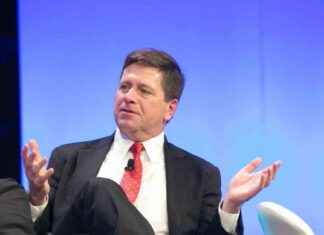He will take a statement that same day from former Vice President Roberto Higuera
MADRID, 18 Oct. (EUROPA PRESS) –
The judge of the National Court (AN) Santiago Pedraz will take a statement this Wednesday from 10:00 a.m. to the former president of Banco Popular Ángel Ron as a result of a complaint for an alleged crime of fraud to investors or breach of the duties of information in the capital increase carried out in 2012.
Despite the fact that this summons was initially scheduled for Tuesday, the head of the Central Court of Instruction Number 5 postponed the statement at the request of Ron’s representation, who had a matching statement.
Pedraz, who will listen to Ron starting at 10:00 am, will then take a statement from the former vice president of the bank, Roberto Higuera. A day later, on Thursday, he will listen to José María Sanz and the PWC consultant, all as defendants.
These citations come after the judge admitted last June two complaints against this expansion of the banking entity, considering that they could incur in “omissions and biased and misrepresented information to raise capital that otherwise would not have been possible to obtain, breaching the information duties established in order to guarantee the transparency of the securities market”.
It should be noted that the facts in which Pedraz investigates are different from those that are investigated in another court of the AN, the Central of Instruction Number 4. Specifically, Judge José Luis Calama investigates in two phases of the resolution process of the Popular: the alleged accounting irregularities of the entity in 2016, with the capital increase that year, and the leaks to the press a year later that would have caused its resolution in mid-2017.
In one of the admitted complaints, filed by Miguel Ángel Pereira and on behalf of another 50 people who lost their money as a result of the aforementioned capital increase, the financial situation of the bank in the years 2010, 2011 and 2012 is reported and the indications by which it is understood that the truth was lacking in the information given for the 2012 extension.
For Pedraz, this requires analyzing the financial situation of the entity before 2012 to clarify whether there are signs of criminal activity by the defendants. This first letter is directed against Ron, Higuera and against Banco Popular itself.
The second complaint, filed on behalf of the commercial companies Cerquia Gestión and Cercupenta and Carlos Cercadillo, is directed against Banco Santander, Ron, the PWC consulting firm and the latter’s auditor, José María Sanz. In addition, the letter expands the object of the previous one by referring to crimes of accounting falsehood since 2008 as well as unfair administration.
Regarding the defendants contained in this latest complaint, Pedraz introduced an important nuance and that is that “Banco Santander must be excluded as criminally responsible, which the plaintiffs consider responsible as the successor of Popular.”
Thus, and recalling that this was already the subject of analysis by the Criminal Chamber, Pedraz pointed out that Santander “could not be criminally liable for the operations that had been carried out within” the former Popular. All this “without prejudice to being considered, for the time being, as subsidiary civil liability.”






